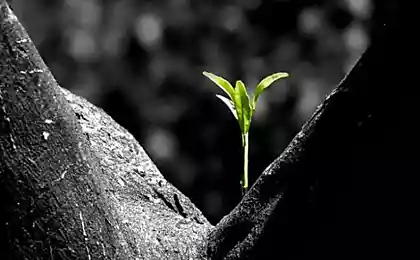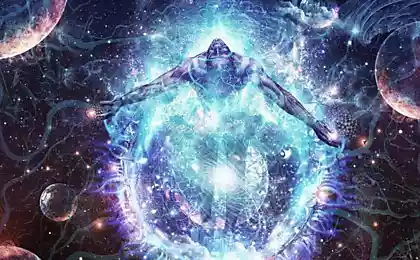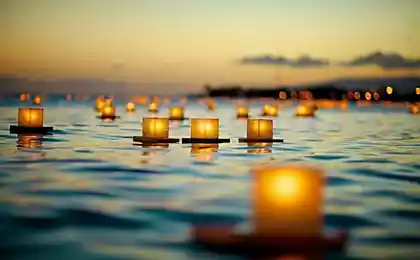556
People and force majeure
Four stories about people who faced a force majeure.
Please do not break the collection is finished I will inform
hence
History №1
Gnadinger Manfred (Manfred Gnädinger). The German, who settled in Galicia (Spain) on the ocean. He built himself a tiny hut of 2x3 meters without running water and sanitation. In any weather I went barefoot wearing only a loincloth. I ate seafood and that grew in your garden. He lived in harmony with nature. It was viewed as a harmless lunatic village.
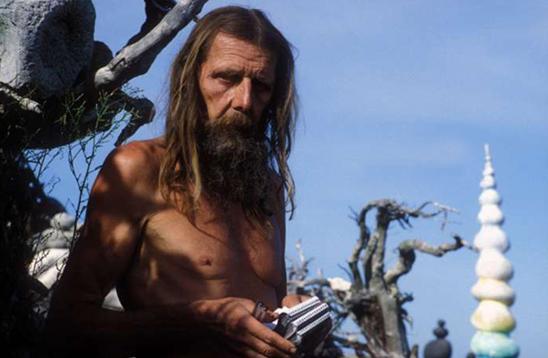
And build sculptures of stone, sand, trees, and all that the sea washed ashore. His work is something reminiscent of Gaudi. Eventually he became a local landmark - it started coming to see tourists.
And in 2002, he crashed on the oil tanker "Prestige". The captain began to ask for help, but under pressure from the French, who feared for their beaches, was forced to change course - he was not allowed to enter the harbor for repair. Bumped storm and the ship broke in half.
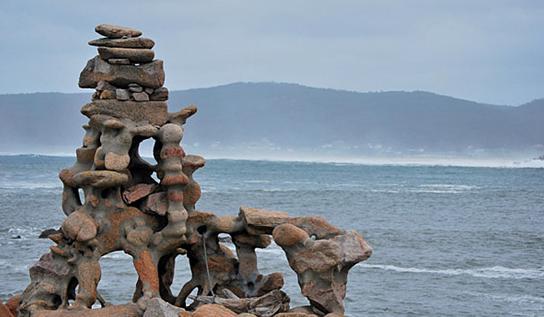
It was the largest ecological disaster in the history of Spain (and got the French and Portuguese). Beach, where he lived, Manfred, was destroyed - it was covered with a thick layer of oil. He was unbeaten and impressed - by the world in which he lived, there was nothing left. A month later he was found dead in his hut. Local people believe that he died of melancholy and sadness.
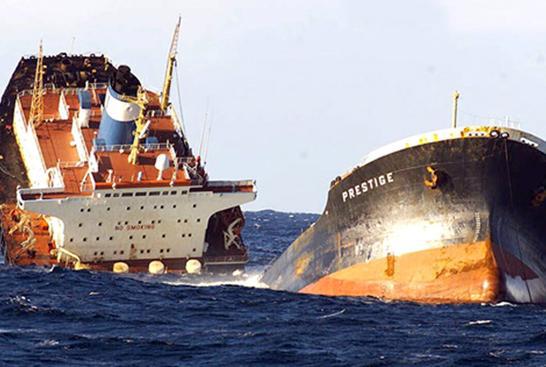
Story number 2
In 1943 Goebbels decided to present a gift to the Fuehrer - he decided to completely clean of Jews from Berlin. According to the census 1933 in Berlin, lived 160,564 person of the Jewish faith. In February 1943 - a few thousand of them left. They were mostly Jews from mixed marriages, the wife refused to divorce them (the divorce meant for immediate deportation of the Jews), and so-called "protected Jews", which the State for various reasons, are exempt from deportation.
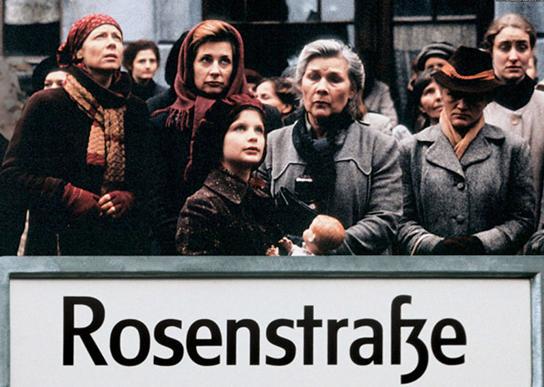
The operation was carefully prepared. The SS men seized people at work and at home. Any "reservation" to invalidate. Several thousand people were brought to the transit camp at Rose Street (Rosenstrasse 2-4) to be sent to Auschwitz. To get at least some news from their husbands, also began to come to their wives. Several dny continued rally. Around the building is constantly there were several hundred people, successive. In response to the demands of the police to disperse the people diverged briefly and then gathered again. The women chanted "Bring back our husbands." It's hard to believe, but they won. In fact, it was the first and only performance of German racism.
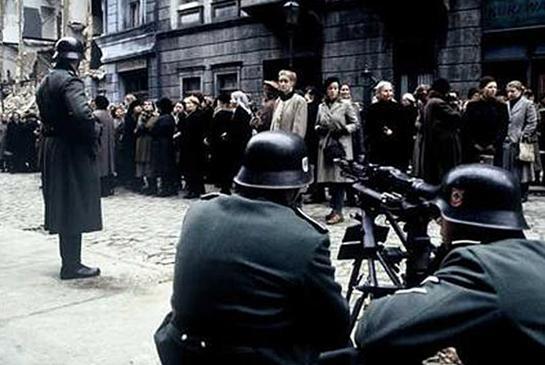
Several thousand Jews were released. Already sent to Auschwitz were returned there. All released to obtain legal documents, certificates and licenses. Many of them survived until the end of the war.
It is difficult to say why the Nazis went back on their word. Certainly played a role and the constant bombing of Berlin and the British defeat of the Germans at Stalingrad. But without the courage of women who were not frightened to remain silent, the miracle would have happened.
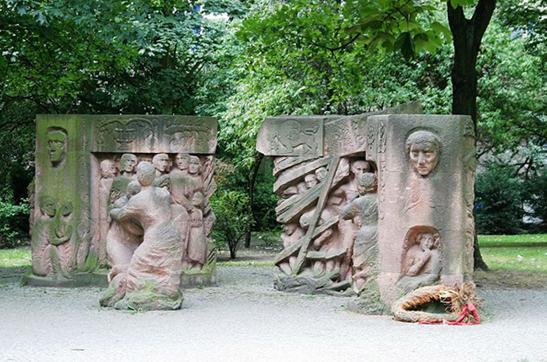
History №3
Yacouba Sawadogo - a simple farmer from Burkina Faso, who figured out how to stop the advance of the desert. He began to struggle with zasuzami Sahel. Sahel gradually turns fertile land into desert.
Jacob came up with a simple solution - put in dug wells straw, manure and other organic fertilizers, which retains moisture longer. These fertilizers are also food for termites, loosen the soil. If no termite - they podselyayut on site.
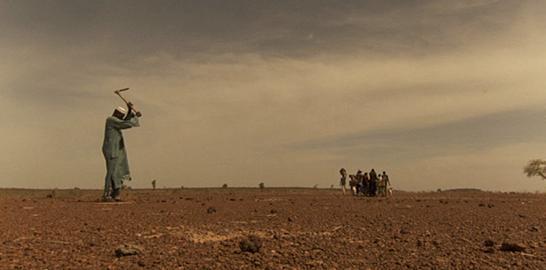
A simple peasant was able to do what could not be a huge number of people. He grew lifeless on the ground, first garden, and then the forest. And Jacob has taught hundreds of people how to deal with the desert.
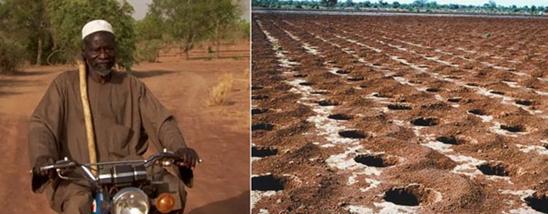
And then the government gave him a farm nearby town. And he began all over again.
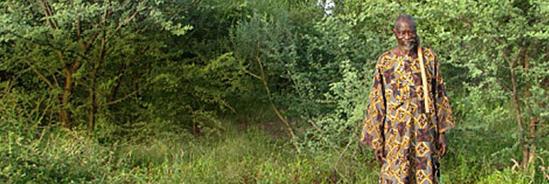
Story number 4
Old building of the French Embassy is known to every Muscovite. It was built by the owner of the gold mines Nikolai Igumnov. Brick discharged from the Netherlands, and tiles for decoration were manufactured at the famous factory Kuznetsova. In 1901, the merchant gave a grand ball in their new home. To impress guests floor was strewn with gold pieces. The next day the king had filed a report about what the guests trampled with their feet face the emperor minted on coins. Nicholas II was very angry and ordered to send the merchant from Moscow.
Merchant deported to Alahadzy. Now it is a holiday village near Pitsunda. And then it was completely uninhabitable malarial swamp. Merchant bought for a pittance 6000 dessiatinas useless land.
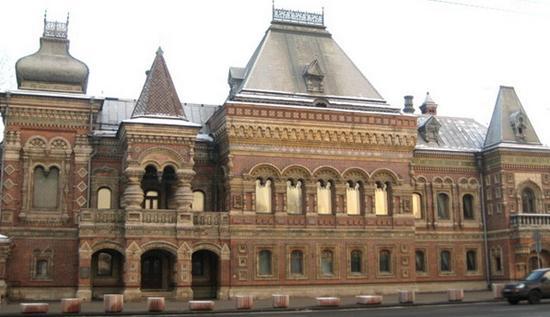
Posted in [mergetime] 1308253898 [/ mergetime]
He began to drain swamps. I planted hundreds of eucalyptus and cypress. I grow a tangerine garden, planted plantation of medicinal trees - camphor and cinchona. Barge imported from Kuban chernozem. Malarial swamp transformed into a paradise. After the revolution refused to emigration, the new government gave their lands to work as an agronomist in Alahadzy organized in the farm name of the Third International.
Vsё.Spasibo
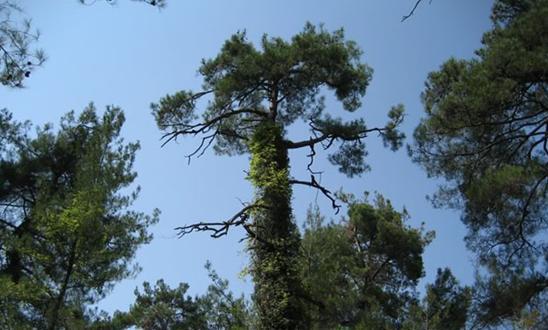
Source:
Please do not break the collection is finished I will inform
hence
History №1
Gnadinger Manfred (Manfred Gnädinger). The German, who settled in Galicia (Spain) on the ocean. He built himself a tiny hut of 2x3 meters without running water and sanitation. In any weather I went barefoot wearing only a loincloth. I ate seafood and that grew in your garden. He lived in harmony with nature. It was viewed as a harmless lunatic village.

And build sculptures of stone, sand, trees, and all that the sea washed ashore. His work is something reminiscent of Gaudi. Eventually he became a local landmark - it started coming to see tourists.
And in 2002, he crashed on the oil tanker "Prestige". The captain began to ask for help, but under pressure from the French, who feared for their beaches, was forced to change course - he was not allowed to enter the harbor for repair. Bumped storm and the ship broke in half.

It was the largest ecological disaster in the history of Spain (and got the French and Portuguese). Beach, where he lived, Manfred, was destroyed - it was covered with a thick layer of oil. He was unbeaten and impressed - by the world in which he lived, there was nothing left. A month later he was found dead in his hut. Local people believe that he died of melancholy and sadness.

Story number 2
In 1943 Goebbels decided to present a gift to the Fuehrer - he decided to completely clean of Jews from Berlin. According to the census 1933 in Berlin, lived 160,564 person of the Jewish faith. In February 1943 - a few thousand of them left. They were mostly Jews from mixed marriages, the wife refused to divorce them (the divorce meant for immediate deportation of the Jews), and so-called "protected Jews", which the State for various reasons, are exempt from deportation.

The operation was carefully prepared. The SS men seized people at work and at home. Any "reservation" to invalidate. Several thousand people were brought to the transit camp at Rose Street (Rosenstrasse 2-4) to be sent to Auschwitz. To get at least some news from their husbands, also began to come to their wives. Several dny continued rally. Around the building is constantly there were several hundred people, successive. In response to the demands of the police to disperse the people diverged briefly and then gathered again. The women chanted "Bring back our husbands." It's hard to believe, but they won. In fact, it was the first and only performance of German racism.

Several thousand Jews were released. Already sent to Auschwitz were returned there. All released to obtain legal documents, certificates and licenses. Many of them survived until the end of the war.
It is difficult to say why the Nazis went back on their word. Certainly played a role and the constant bombing of Berlin and the British defeat of the Germans at Stalingrad. But without the courage of women who were not frightened to remain silent, the miracle would have happened.

History №3
Yacouba Sawadogo - a simple farmer from Burkina Faso, who figured out how to stop the advance of the desert. He began to struggle with zasuzami Sahel. Sahel gradually turns fertile land into desert.
Jacob came up with a simple solution - put in dug wells straw, manure and other organic fertilizers, which retains moisture longer. These fertilizers are also food for termites, loosen the soil. If no termite - they podselyayut on site.

A simple peasant was able to do what could not be a huge number of people. He grew lifeless on the ground, first garden, and then the forest. And Jacob has taught hundreds of people how to deal with the desert.

And then the government gave him a farm nearby town. And he began all over again.

Story number 4
Old building of the French Embassy is known to every Muscovite. It was built by the owner of the gold mines Nikolai Igumnov. Brick discharged from the Netherlands, and tiles for decoration were manufactured at the famous factory Kuznetsova. In 1901, the merchant gave a grand ball in their new home. To impress guests floor was strewn with gold pieces. The next day the king had filed a report about what the guests trampled with their feet face the emperor minted on coins. Nicholas II was very angry and ordered to send the merchant from Moscow.
Merchant deported to Alahadzy. Now it is a holiday village near Pitsunda. And then it was completely uninhabitable malarial swamp. Merchant bought for a pittance 6000 dessiatinas useless land.

Posted in [mergetime] 1308253898 [/ mergetime]
He began to drain swamps. I planted hundreds of eucalyptus and cypress. I grow a tangerine garden, planted plantation of medicinal trees - camphor and cinchona. Barge imported from Kuban chernozem. Malarial swamp transformed into a paradise. After the revolution refused to emigration, the new government gave their lands to work as an agronomist in Alahadzy organized in the farm name of the Third International.
Vsё.Spasibo

Source:







